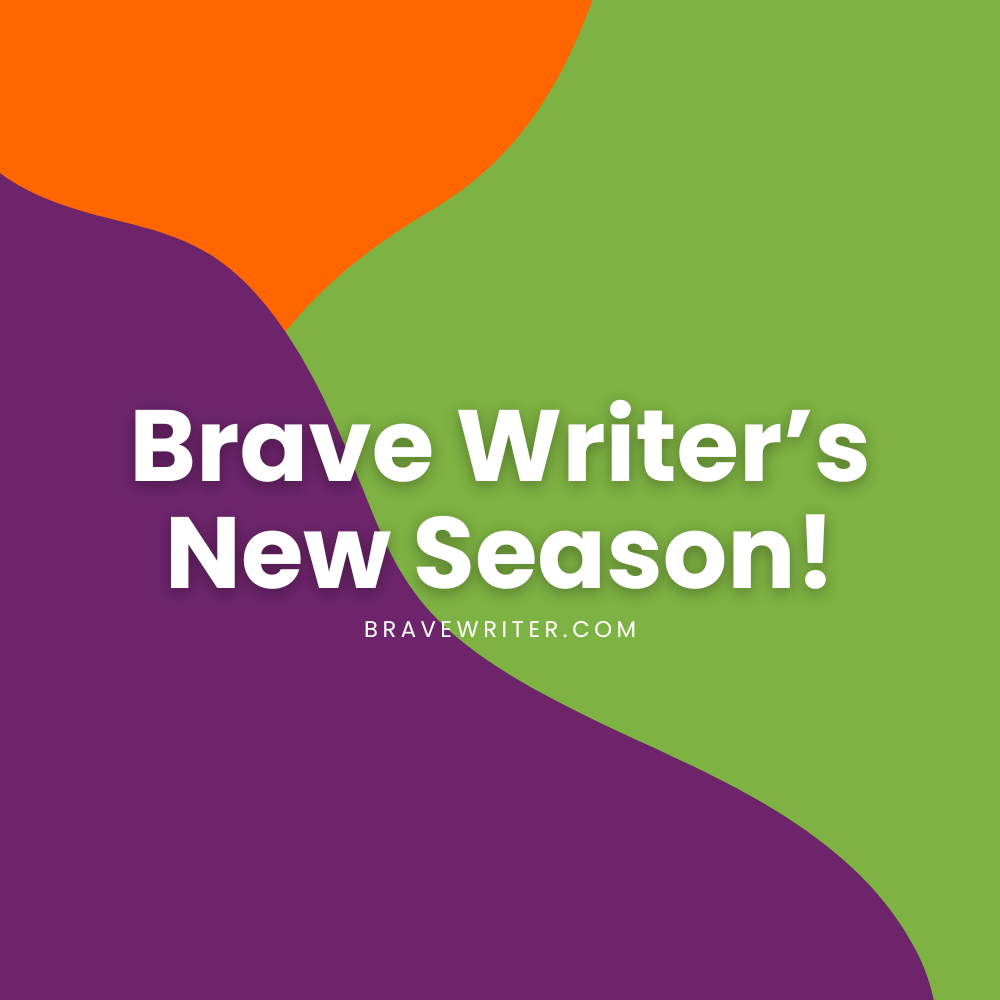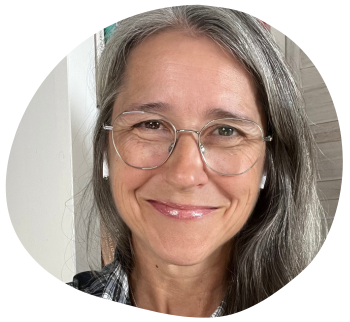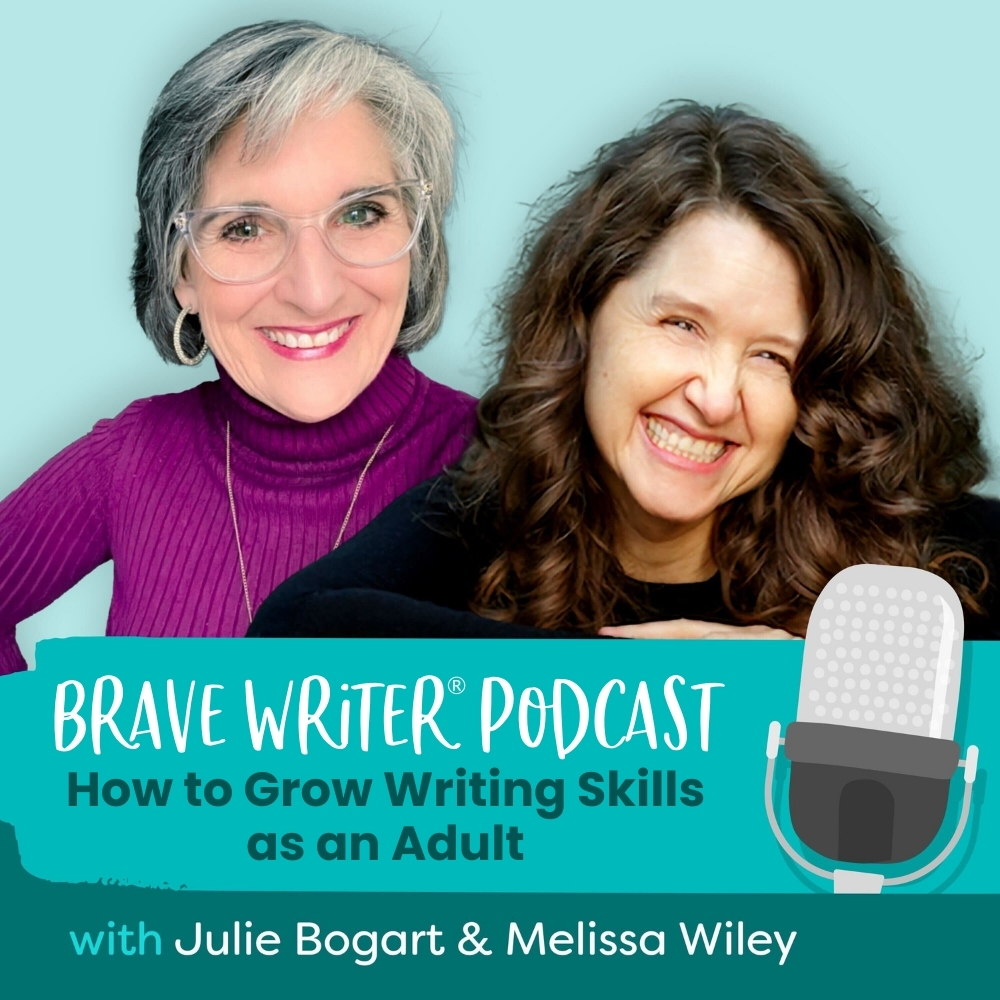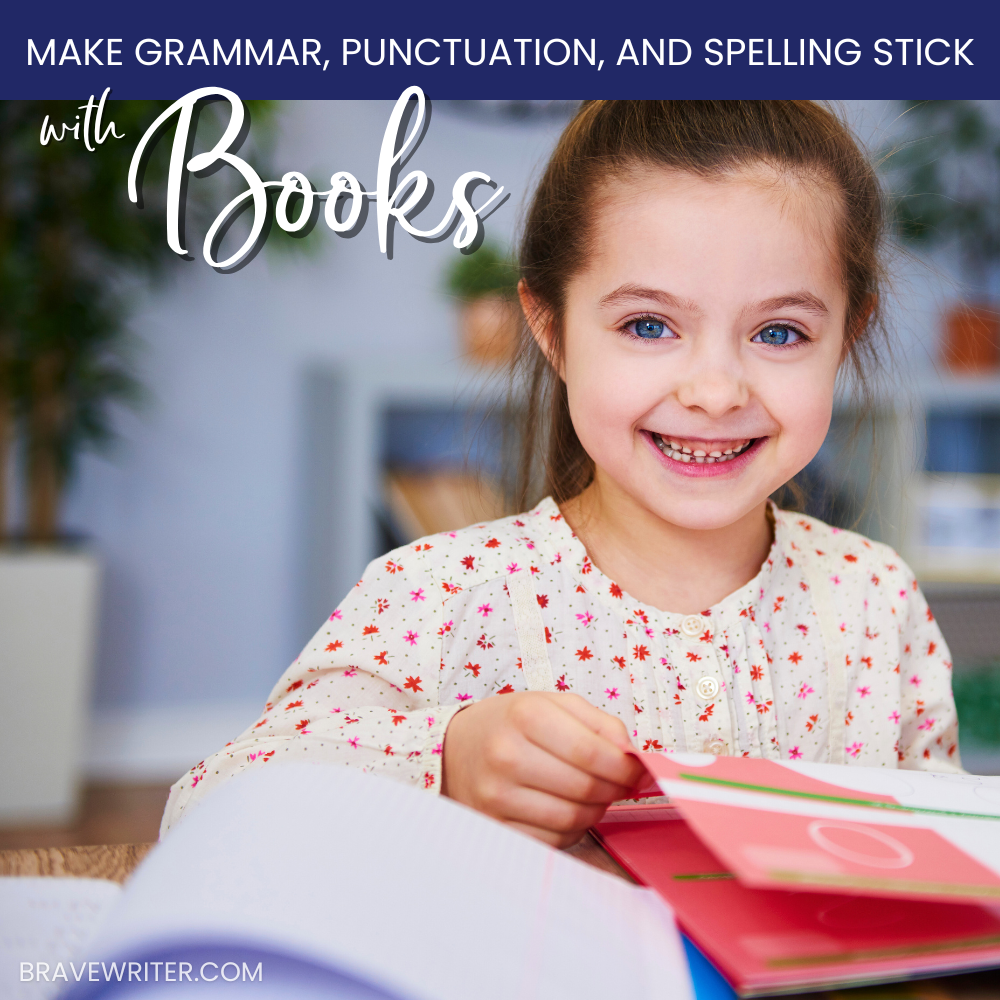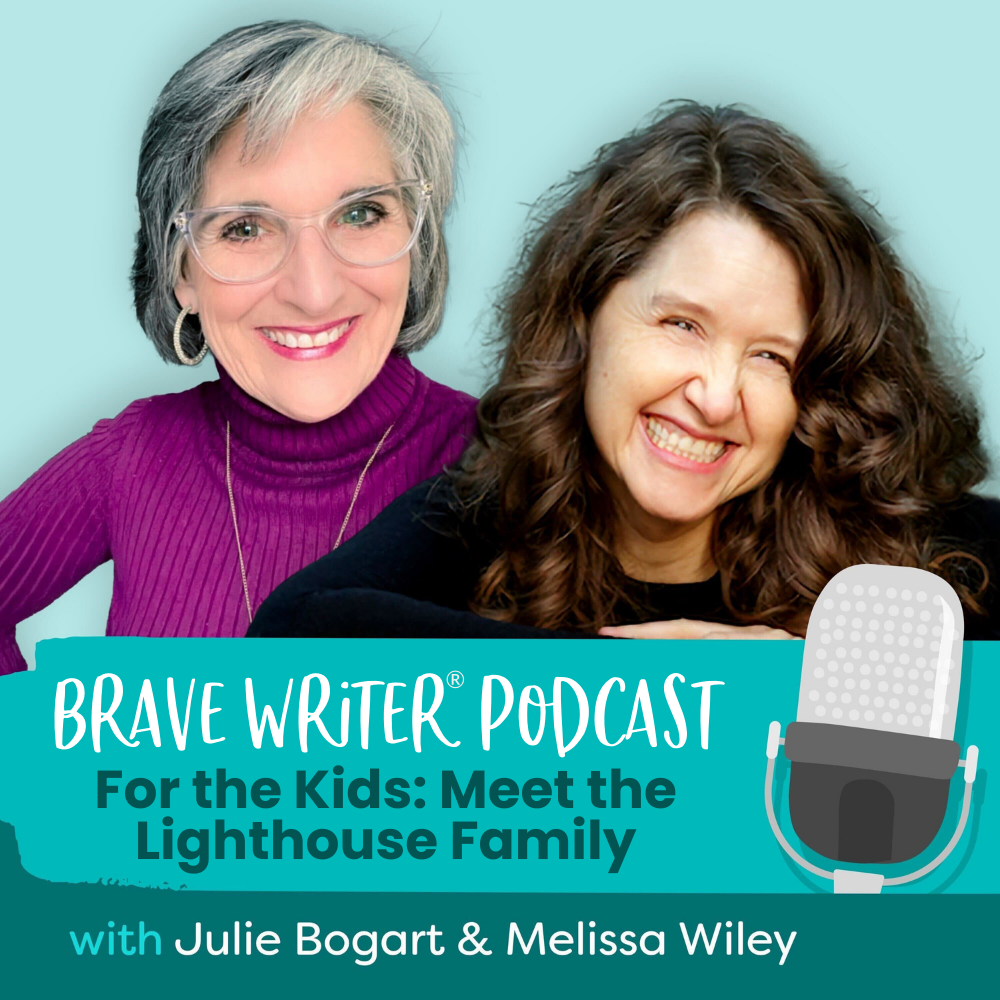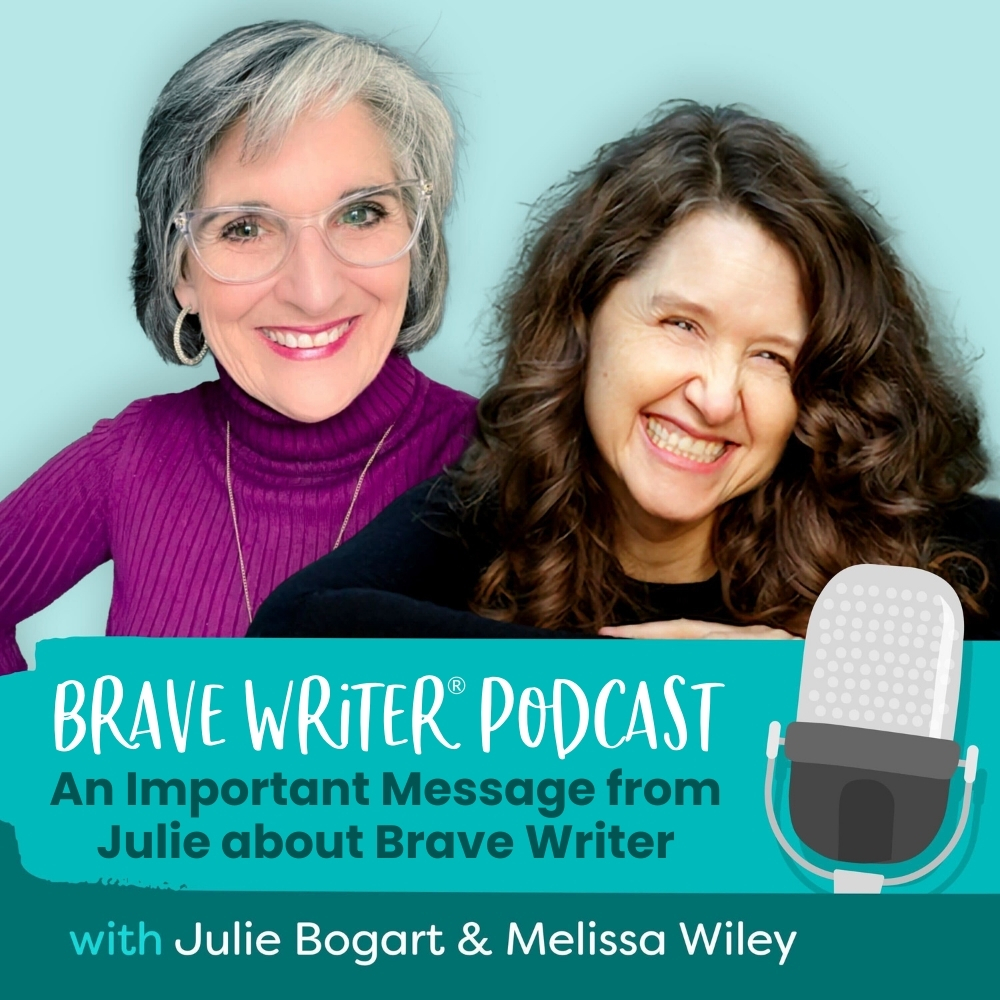
What happens when you realize the mission can grow even as your energy changes?
This week on the podcast, we share a heartfelt update about Brave Writer’s next chapter—
- why protecting the “sacred trust” matters,
- how strong culture makes change possible,
- and what it looks like to move from doing it all to mentoring new leadership.
Along the way, we revisit a long-held Florence dream (Santa Croce + A Room with a View), talk about training replacements, and offer a “January gift” idea: online writing classes kids experience as a treat.
Come listen—then join us at bravewriter.com/online-classes.
Show Notes
There’s a moment many parents and creators eventually face when the work still matters deeply, but the way it’s been carried no longer fits. Today’s episode centers on one of those moments for Brave Writer. Brave Writer is in the midst of a leadership transition, one that allows the work to continue with strength and clarity while honoring a new season for the founder and for the company as a whole.
Brave Writer is not closing. It isn’t being sold or dismantled. Instead, day-to-day operations are moving into the capable hands of longtime team members, Dawn Smith (as President) and Kirsten Merryman (as VP of Operations). They are well trained in the pedagogy, culture, and mission of Brave Writer from the inside and they are fierce protectors of the legacy of our work. This shift protects what families have trusted for years while opening space for new energy and vision at the operational level.
Why This Change Makes Sense
In homeschooling, we’re familiar with seasons. Early years require constant involvement. Later years invite us to step back, moving from hands-on instruction to mentoring and encouragement. The goal is always growth, not control. The same pattern appears in meaningful work. When a company like Brave Writer has been carefully built by the founder, there comes a time when the creator of the company is ready to ask who is equipped to carry the movement forward.
This transition in leadership didn’t arise from dissatisfaction or decline. It came through honest reflection paired with the realization that Julie’s original vision for Brave Writer has been fulfilled and even surpassed. Brave Writer remains intact. What’s changing is how that mission is stewarded day to day.
Training Replacements Is Part of the Mission
One of the most overlooked forms of leadership is training others to do your job well. Brave Writer has always operated on this principle. Teachers, editors, writers, course designers, and administrative leaders have been trained over years, not dropped into roles overnight. That kind of preparation makes a transition like this possible without disruption.
Families already understand this concept. We teach writing as a process so children don’t depend on constant correction. Drafting, revising, and reflecting are skills meant to be internalized. When people are trained deeply, the work becomes bigger than any one person.
Process Thinking and Healthy Culture
A strong culture makes change feel like evolution rather than loss. Brave Writer’s culture has always emphasized process over perfection. In writing, revision isn’t a failure. It’s how clarity emerges. That same mindset allows an organization to adjust without panic or defensiveness.
Because the values have been practiced consistently, new leadership doesn’t mean a new identity. It means the same pedagogy, the same respect for children, and the same trust in process, now carried by a broader team.
What This Means for You
For listeners and families, this transition means continuity. Classes, resources, and support remain rooted in the approach you know and love. It also means longevity. Brave Writer is positioned to grow without losing its soul.
It also offers a model worth considering in our own lives. Parenting, teaching, and creative work all ask us to notice when a season is shifting. Stepping into a mentoring role, making room for others, and caring for ourselves are not acts of retreat. They are acts of wisdom.
This moment at Brave Writer isn’t an ending. It’s a revision. And like all good revisions, it keeps what matters most while making space for what comes next.
Resources
- Find A Room With a View in the Brave Writer Book Shop
- Brave Writer class registration is open!
- Visit Julie’s Substack to find her special podcast for kids (and a lot more!)
- Purchase Julie’s new book, Help! My Kid Hates Writing
- Find community in our membership forum, the Brave Learner Home
- Learn more about the Brave Writer Literature & Mechanics programs
- Start a free trial of CTCmath.com to try the math program that’s sure to grab and keep your child’s attention
- Give your child the gift of music! Sign up for a free month of private lessons with Maestro Music and let your child discover their own musical voice: www.maestromusic.online/brave
- Subscribe to Julie’s Substack newsletters, Brave Learning with Julie Bogart and Julie Off Topic, and Melissa’s Catalog of Enthusiasms
- Sign up for our Text Message Pod Ring to get podcast updates and more!
- Send us podcast topic ideas by texting us: +1 (833) 947-3684
- Interested in advertising with us? Reach out to media@bravewriter.com
Connect with Julie
- Instagram: @juliebogartwriter
- Threads: @juliebogartwriter
- Bluesky: @bravewriter.com
- Facebook: facebook.com/bravewriter
Connect with Melissa
- Website: melissawiley.com
- Substack: melissawiley.substack.com
- Instagram: @melissawileybooks
- Bluesky: @melissawiley.bsky.social
Produced by NOVA


